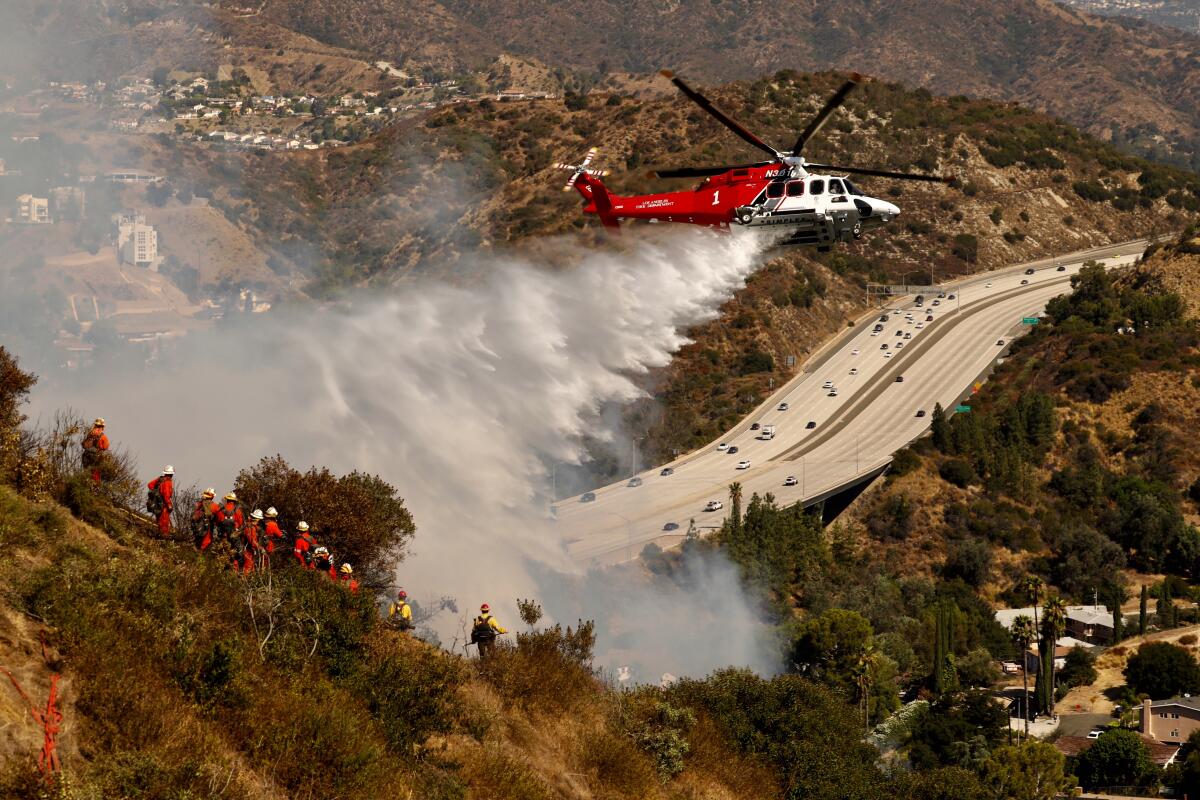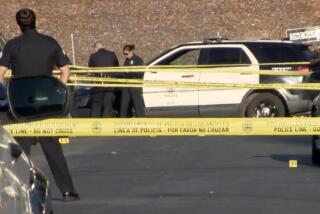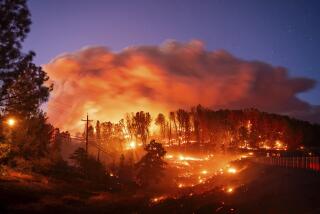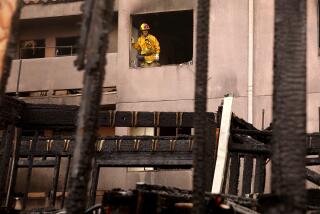How did another attack on the homeless in L.A. lead to a dangerous brush fire?

Prosecutors are still weighing criminal charges against two Los Angeles men who are accused of intentionally setting fire to a homeless encampment late last month, a situation that sparked a brush fire and led to the evacuations of several homes in Eagle Rock and Glendale, authorities said Wednesday.
The Los Angeles Police Department announced the arrests of Daniel Nogueira and Brian Araujo Cabrera, both 25, on suspicion of attempted murder late Tuesday afternoon. But on Wednesday, prosecutors referred the case back to detectives and asked them to conduct a deeper investigation of Cabrera’s alleged involvement in the fire, according to Greg Risling, a spokesman for the Los Angeles County district attorney’s office.
Risling said prosecutors were still reviewing possible attempted murder charges against Nogueira, whose father serves as the president of the Eagle Rock Chamber of Commerce, late Wednesday.
The fire broke out around 4 p.m. on Aug. 25 in the 2900 block of Colorado Avenue, an area near the intersection of the 2 and 134 freeways that activists say has become the site of a growing homeless encampment in recent weeks. According to a statement issued Tuesday by the Los Angeles Fire Department, Nogueira and Cabrera targeted the homeless encampment, though officials have not said how the fire was set or offered a motive in the attack.
No buildings were damaged or destroyed, though the blaze did force some people to flee their homes and spark panic in the area. One firefighter sustained a minor injury responding to the blaze, authorities said.
The fire spread about 45 acres and threatened nearly 100 homes in Glendale, fire officials said at the time.
The LAFD said in its statement that arson investigators zeroed in on Nogueira and Cabrera after analyzing “burn patterns, witness statements and surveillance videos.”
Both men were arrested on Aug. 31 and held in lieu of $1 million, according to an LAPD spokesman. Nogueira has since been released on bond, according to jail records.
Nogueira’s father, Michael, is the president of the Eagle Rock Chamber of Commerce. Property records show a Daniel Nogueira with the same date of birth as the suspect arrested in the arson living at an Eagle Rock address. Michael Nogueira also lives at that address, which is less than a mile from the scene of the fire.
An employee who answered the phone at the Chamber of Commerce on Wednesday said Michael Nogueira had been the president of the organization for at least 10 years and described him as growing “distressed and distraught” when he learned of his son’s arrest.
Attempts to contact the Nogueira family were unsuccessful on Wednesday.
The danger of fires within homeless encampments has become an increasing concern for city officials and law enforcement in recent months. Last week, a homeless musician was burned to death in skid row after someone allegedly set his tent ablaze on Aug. 26.
Pete White, executive director of the skid row-based Los Angeles Community Action Network, told The Times last week that there had been a rash of tent fires in the downtown area in August, oftentimes resulting from disputes.
With wildfire season approaching, the Los Angeles City Council also unanimously passed a measure Wednesday that would make it easier for the LAPD to clear out encampments in areas that are at high risk for fires.
Previously, authorities had to post signs every 500 feet warning people not to trespass in such areas. But the new ordinance allows police to merely issue a verbal warning to homeless people that they have to move.
While the move was in part motivated by the fact that a cooking fire at a homeless encampment near the 405 Freeway sparked the massive Skirball fire in late 2017, Councilman Mike Bonin referenced the attack in Eagle Rock while speaking about the ordinance Wednesday.
“I want to make sure as we do this — to protect housed and unhoused — that we remember that there are people who are homeless who are not just starting a fire but are also being victimized by it,” he said.
Times staff writer Ben Oreskes contributed to this report.
More to Read
Sign up for Essential California
The most important California stories and recommendations in your inbox every morning.
You may occasionally receive promotional content from the Los Angeles Times.











